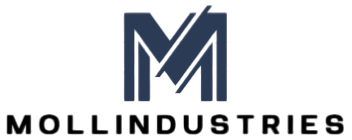Darknet platforms offer crucial tools for anonymity that have become indispensable for journalists around the world. In many regions, the freedom of the press is under threat, with governments or other entities actively monitoring communication, censoring content, or even persecuting reporters for their investigative work. Journalists who report on sensitive topics, such as corruption, human rights abuses, or environmental issues, often face the risk of retaliation, surveillance, or physical harm. In this context, the Darknet provides a refuge by offering a level of anonymity that is nearly impossible to achieve through traditional means of communication. One of the key features of Darknet platforms is the ability to shield users’ identities and location. Journalists can use these platforms to communicate securely with sources, share documents, or access information without revealing their true identities or physical whereabouts. This is particularly vital in authoritarian regimes, where even the smallest hint of dissent can lead to arrest, imprisonment, or worse. By utilizing encrypted networks, journalists can protect both their sources and themselves from potential exposure, ensuring the safety of individuals who wish to remain anonymous.
The anonymity tools available on the Омг Омг Darknet also enable journalists to bypass censorship. In many countries, information is tightly controlled, with websites or news outlets that cover forbidden topics either blocked or filtered. By accessing the Darknet, journalists can find uncensored information, share it freely, and report on issues that might otherwise be silenced. For example, investigative stories on corruption, political oppression, or corporate malfeasance can be disseminated without fear of government crackdowns or corporate reprisals. Moreover, the Darknet’s infrastructure allows for decentralized communication, which is harder to track and block. This decentralization makes it much more difficult for oppressive governments or hostile actors to shut down platforms or trace activities back to specific individuals. In an age where surveillance is widespread, these decentralized tools are an essential resource for journalists who need to protect both their freedom and the integrity of the stories they seek to tell. In addition to offering anonymity and access to uncensored information, Darknet platforms also provide secure methods of file sharing.
Journalists often handle sensitive documents, such as whistleblower testimony, confidential government reports, or leaked files. These documents may be crucial for exposing the truth, but sharing them through conventional channels can expose journalists and their sources to significant risks. Darknet services, however, offer encrypted file-sharing options that ensure these materials remain private, even when transmitted across unsecured networks. While the Darknet is often associated with illicit activities, its role in enabling secure, anonymous communication for journalists should not be overlooked. The ability to conduct investigative reporting without fear of being traced or silenced is fundamental to the functioning of a free press. For journalists operating in high-risk environments, these platforms are not just useful they are vital tools for ensuring that the truth can be shared, regardless of the obstacles posed by censorship, surveillance, or threats of violence.
